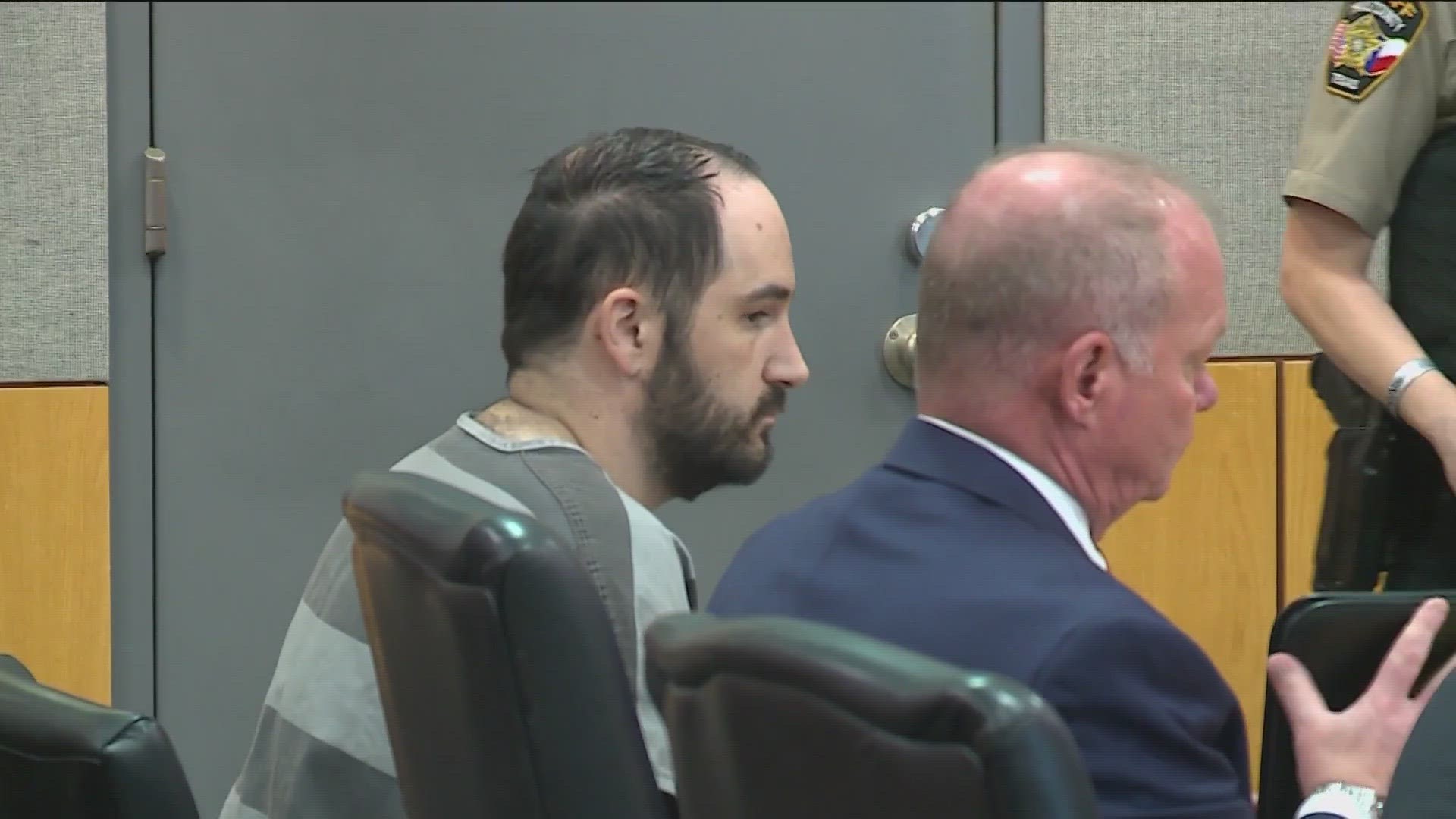AUSTIN, Texas — Sentencing for Daniel Perry will be determined at 10 a.m. on Wednesday, May 10, following a sentencing hearing that began on Tuesday, May 9.
On Tuesday, Perry returned to the courtroom for the hearing after he was convicted for the murder of an armed protester – Garrett Foster – during the social justice protests in July 2020.
Perry faces between five and 99 years in prison. The defense is asking the court to consider a sentence of 10 years for Perry. The State is asking the court to consider a sentence that's at least 25 years.
"People can look at the types of sentences that have been issued over the last two years in Travis County and similar cases in general," said Rick Cofer, criminal defense attorney. "Those sentences range anywhere from about 20 years to about 50 years."
Judge Clifford Brown will be the one to decide how many years Perry will spend in prison. At the sentencing hearing on Tuesday, Brown said Perry's sentencing will be determined at 10 a.m. on Wednesday.
"The defense made the election in this case to have punishment assessed by Judge Brown," said Charlie Baird, a retired district court judge. "Judge Brown is an excellent judge, very well respected by both the criminal defense bar and the prosecution and known to be a very fair man. And so, I think that that's why they elected him."
During Tuesday's sentencing, the State was allowed to bring in any type of criminal or bad acts that Perry had engaged in over the years to influence the amount of time in prison he receives.
Perry's team was also allowed to bring in any good acts, like reminding the judge he was in the military and any awards or medals he might have received.
On Tuesday, the State called Whitney Mitchell, fiancée of Garrett Foster, to the stand to testify.
The defense brought up a forensic psychologist to testify, as well as Kevin Wilcox, Brittany Schaale and Ronald Wilson, who both served with Perry in the military. Traveon Napper, a former coworker of Perry's at Ford Hood, also testified via Zoom. Perry's mother, Rachel Perry, was also brought by the defense to testify.
"Sometimes, an acceptance of contrition and acceptance of responsibility can go a long way toward a judge," Baird said. "As far as a lighter punishment would be concerned … when they accept responsibility for their own criminal conduct, it typically shows that they're on the road to some level of rehabilitation."
Once sentencing is complete, Cofer expects Perry's legal team to take two routes.
"Mr. Perry's legal team will pursue all of the normal appellate remedies under Texas law," Cofer said. "No. 2, this proposed pardon of Mr. Perry will likely begin to get traction."
Last week, a judge denied Perry's lawyers' motion for a retrial. After Perry was convicted, Gov. Greg Abbott said he wanted the Texas Board of Pardons and Paroles to review the case. Some described Abbott's early involvement as an overreach.
But according to Baird, Abbott's involvement could be the reason the parole board takes action.
"I would expect that it would be a favorable action because Gov. Abbott appointed the parole board," Baird said. "He has the authority, I believe, and the power to remove individuals that he wishes to from the parole board. So, it could be that they feel like they're in a coercive environment and that they must act as in accord with the wishes expressed by Gov. Abbott. "

